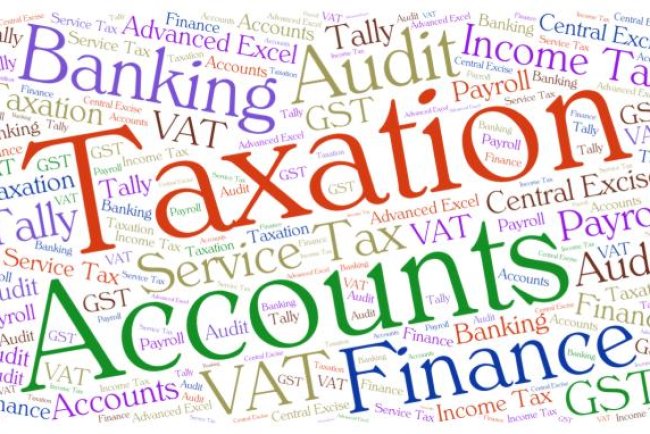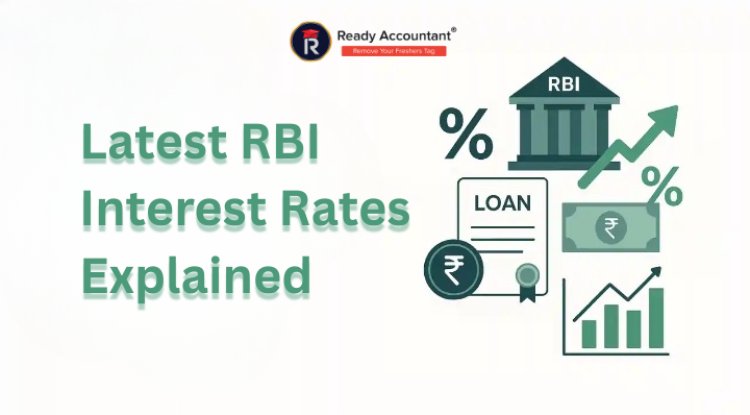A Simple Guide to Income Tax Audit Rules, Due Dates & Penalties (2025)
This guide explains the key aspects of Income Tax Audit 2025, including rules, due dates, and penalties. Businesses with turnover above ₹1 crore (or ₹10 crore with digital transactions) and professionals with receipts over ₹50 lakh must undergo a tax audit under Section 44AB. The tax audit report deadline is 30th September 2025, and the ITR filing deadline is 31st October 2025 (30th November for transfer pricing cases). Non-compliance can attract penalties of up to ₹1.5 lakh. Using modern tools like SAP FICO, adopting Certified Corporate Accounting, and staying updated on Taxation (Income Tax & GST) rules can ensure timely compliance and smooth audits.
Managing taxes is one of the most crucial responsibilities for businesses and professionals in India. Among the various compliance requirements, income tax audit plays a key role in ensuring the transparency and accuracy of financial records. Every year, the Income Tax Department mandates specific categories of taxpayers to undergo a tax audit as per Section 44AB of the Income Tax Act, 1961.
If you are a business owner, professional, or accountant, understanding the latest rules, due dates, and penalties is critical to avoid unnecessary tax liabilities. In this article, we present A Simple Guide to Income Tax Audit Rules, Due Dates & Penalties (2025) in an easy-to-understand manner.
What is an Income Tax Audit?
An income tax audit is an examination of the books of accounts of taxpayers to verify whether the income, expenses, and deductions claimed are correct as per the provisions of the Income Tax Act. Unlike a statutory audit (required under the Companies Act), the income tax audit is specifically concerned with compliance under taxation laws.
The audit is conducted by a Chartered Accountant (CA), who issues a tax audit report in the prescribed format (Form 3CA/3CB and Form 3CD).
Who Needs an Income Tax Audit in 2025?
As per Section 44AB, the following categories of taxpayers are required to undergo a tax audit in the financial year 2024–25 (AY 2025–26):
-
Businesses
-
If total sales, turnover, or gross receipts exceed ₹1 crore in a financial year.
-
If turnover exceeds ₹10 crore, but only where cash transactions are more than 5% of total receipts and payments.
-
-
Professionals
-
If gross receipts exceed ₹50 lakh in a financial year.
-
-
Presumptive Taxation Scheme (u/s 44AD, 44ADA, 44AE, etc.)
-
If you have opted for presumptive taxation but declare profits lower than the prescribed rate and your total income exceeds the basic exemption limit, a tax audit is mandatory.
-
Due Dates for Income Tax Audit (2025)
The Income Tax Department prescribes strict timelines for filing tax audit reports.
-
Due date for Tax Audit Report (Form 3CA/3CB and 3CD):
30th September 2025 for most taxpayers who require an audit. -
Due date for ITR filing (for taxpayers subject to audit):
31st October 2025.
It is important to note that if the taxpayer is required to furnish a report under Section 92E (international or specified domestic transactions), the due date for filing the ITR will be 30th November 2025.
Income Tax Audit Report Formats
The Chartered Accountant prepares the tax audit report in the following formats:
-
Form 3CA – For taxpayers already subject to statutory audit under another law.
-
Form 3CB – For taxpayers not required to get their accounts audited under any other law.
-
Form 3CD – A detailed statement of particulars that includes information about loans, payments, depreciation, deductions, compliance, etc.
Penalties for Non-Compliance with Tax Audit
Failure to comply with income tax audit requirements can lead to heavy penalties. As per Section 271B:
-
Penalty is 0.5% of total sales, turnover, or gross receipts, subject to a maximum of ₹1,50,000.
However, no penalty will be levied if the taxpayer can prove that the failure was due to reasonable cause, such as natural calamities, resignation of the auditor, loss of accounts, or unavoidable circumstances.
Benefits of Timely Income Tax Audit
While it may seem like an additional compliance burden, timely completion of a tax audit offers several advantages:
-
Ensures accuracy of financial statements.
-
Builds credibility with lenders, investors, and regulatory bodies.
-
Helps identify errors, fraud, or non-compliance in accounting practices.
-
Facilitates smooth ITR filing and reduces the risk of notices from the Income Tax Department.
Role of Technology in Tax Audits (2025)
With increasing digitalization, tax audits have become more streamlined. Use of accounting and financial tools such as SAP FICO (Finance & Controlling) enables businesses to maintain accurate records of income, expenses, and compliance.
Similarly, professional services in Certified Corporate Accounting and expertise in Taxation (Income Tax & GST) ensure that businesses remain compliant with ever-changing tax laws. Leveraging these systems reduces errors and saves significant time during audit preparation.
Key Takeaways for 2025
Here’s a quick summary of A Simple Guide to Income Tax Audit Rules, Due Dates & Penalties (2025):
-
Mandatory Audit – Businesses with turnover above ₹1 crore (or ₹10 crore with digital transactions) and professionals with receipts above ₹50 lakh must get audited.
-
Due Dates –
-
Audit report filing: 30th September 2025
-
ITR filing (audited cases): 31st October 2025
-
ITR filing (u/s 92E cases): 30th November 2025
-
-
Penalty – Non-compliance may lead to penalties up to ₹1.5 lakh.
-
Technology Integration – Using tools like SAP FICO and corporate accounting services ensures smooth compliance.
Final Thoughts
For businesses and professionals in India, understanding and complying with income tax audit rules is not optional—it’s a legal requirement. Missing deadlines or ignoring audit applicability can result in penalties, legal complications, and unnecessary financial stress.
By adopting Certified Corporate Accounting practices, leveraging SAP FICO (Finance & Controlling), and staying updated with Taxation (Income Tax & GST) rules, you can simplify compliance and ensure the timely completion of audits
What's Your Reaction?




















